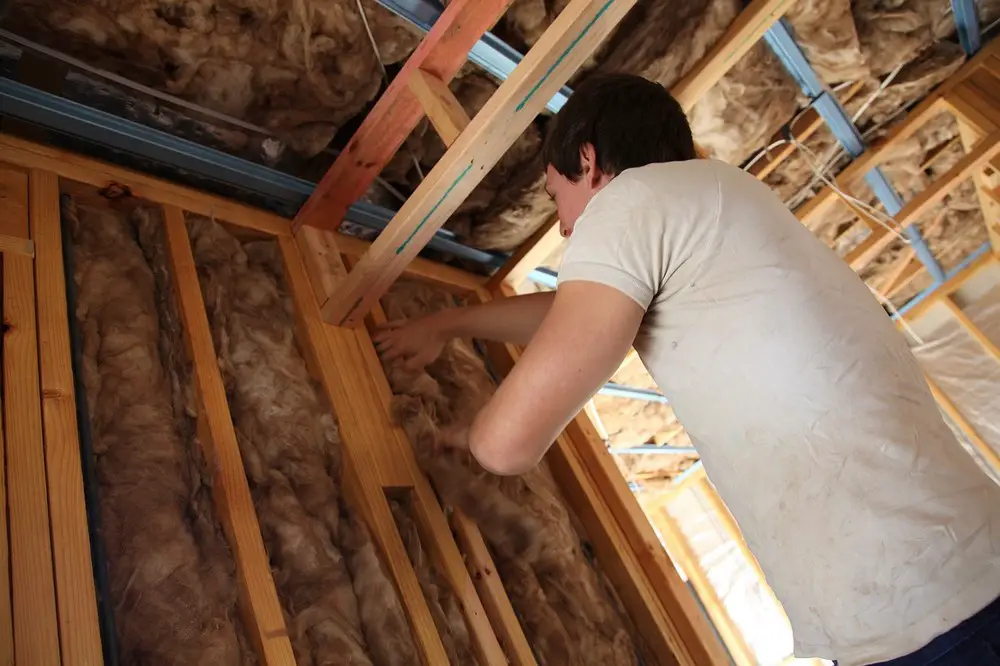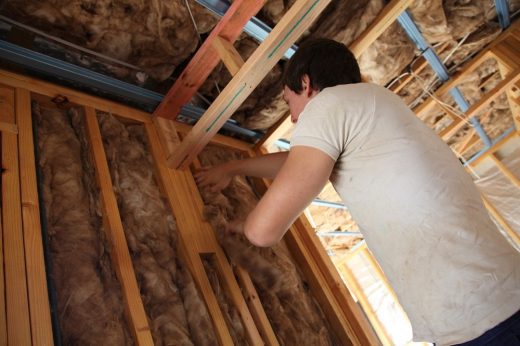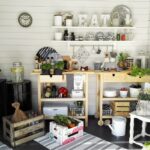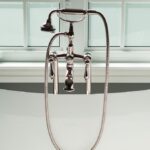Home improvement through upgrading energy-efficient guide, Green building design advice, Eco house tips
Home Improvement through upgrading Energy-Efficient design
28 Aug 2023
The modern housing market is a dynamic and competitive landscape, with properties, both vintage and contemporary, fetching impressive prices. Amid concerns about climate change and escalating utility expenses, homeowners are recognizing the dual benefits of energy-efficient improvements: increased property value and reduced energy costs. As such, many are seeking out handyman services Sydney to implement these energy-saving upgrades, ensuring their homes are both environmentally friendly and market-ready.
The Imperative of Energy-Efficient Enhancements
The evidence is compelling. A comprehensive study by the National Association of Homebuilders highlighted that a staggering 90% of homebuyers would prioritize a residence with energy-efficient features and reduced energy expenditures over a more affordable home lacking these upgrades. Simultaneously, as Stringer, an expert property management company observes, a significant portion of real estate agents noted a marked interest among their clientele in sustainable properties.
This trend underscores the importance of incorporating energy efficiency into your home enhancement strategy, particularly for older properties. Such advancements not only bolster the property’s market value but also offer tangible benefits to the homeowner in the interim. Some immediate advantages include:
Enhanced Comfort: Investing in modern insulation, professional air sealing, and updating aging HVAC systems ensures a consistent and comfortable ambiance throughout the year.
Elevated Indoor Air Quality: Energy-efficient improvements can mitigate moisture, allergens, and dust, ensuring a healthier living environment.
Reduced Energy Consumption: With energy prices soaring nationwide, decreasing your home’s energy consumption is advantageous for both the present homeowner and future residents.
For those keen on elevating their property’s market value, here are some top recommendations.
Insulation and Professional Air Sealing: Cornerstones of Efficiency
Upgrading attic insulation and professional air sealing are essential strategies for addressing a multitude of energy concerns, such as escalating heating and cooling costs, ice dams, and drafts.
Insulation quality inevitably deteriorates over time, and changes in local climate conditions might necessitate periodic updates. Similarly, as homes age, air leaks can emerge around foundations, attic structures, windows, doors, and fixtures. Such leaks, although seemingly minor, can cumulatively lead to considerable energy losses. Energy Star’s estimates suggest that air leaks can result in a 25-40% loss in heating and cooling energy.
Engaging professionals for air sealing can remedy this effectively. Combining expert air sealing with premium insulation installation dramatically amplifies your home’s energy efficiency by establishing a robust thermal barrier. However, it’s essential to approach this with caution. Insulation and ventilation are intricate domains, requiring expert attention. Excessive or poorly executed DIY efforts can inadvertently trap moisture within the property. For potential buyers, while these upgrades might not be directly visible, showcasing documentation of the improvements and resultant energy savings can be persuasive.
Embracing Electric Air-Source Heat Pumps
If you’re contemplating a replacement for your HVAC system, consider the electric air-source heat pump, a pinnacle of HVAC innovation. Homes equipped with this technology typically command a price premium of 4.3–7.1%, translating to an impressive $10,400–17,000 increase in property value.
These heat pumps are versatile, functioning both as heaters and coolers. During summer, they expel warm indoor air while circulating cooler air, and in winter, they draw external heat into the home. Their operation is efficient even in frigid conditions. Additionally, they purify and dehumidify indoor air.
Heat pumps are remarkably energy-efficient, consuming only a third of the energy of conventional HVAC systems. When coupled with upgraded insulation and professional air sealing, the combined effect is a drastic reduction in energy wastage. Such an arrangement is particularly attractive to environmentally-conscious buyers, especially if the transition involves shifting from oil-based heating to an electric heat pump. Notably, homeowners can immediately benefit from these enhancements even before contemplating a sale.
Embracing Smart Thermostats: The Future of Home Temperature Control
A simple thermostat upgrade can be a game-changer in optimizing your home’s energy efficiency. Surveys suggest that a significant majority of those acquainted with smart home products are inclined to prefer homes that come equipped with such technology, elevating the perceived value of the property for discerning buyers.
The Genius of Smart Thermostats:
Unlike traditional models, smart thermostats don’t just offer programmability. They adeptly discern and adapt to a household’s temperature preferences. Their intelligent design ensures minimized energy consumption during periods when the home is unoccupied.
Expected Returns from Smart Thermostats:
Research from renowned smart home tech firm Nest indicated that their smart thermostats tend to pay for themselves within a couple of years, with users observing savings between 10%-12% on heating and a 15% reduction in cooling costs. It’s essential to note that outcomes will vary based on specific circumstances, such as the chosen smart thermostat model and accompanying energy-efficient upgrades like insulation and air sealing.
In essence, infusing your home with smart and energy-efficient technology not only promises immediate benefits but also enhances the property’s attractiveness to future buyers.
Home improvement through energy-efficient upgrades – Heat Pump Water Heaters
One way to bolster the energy efficiency of your home and potentially augment its value is by transitioning to a heat pump water heater. Given that the typical lifespan of hot water heaters ranges between 8 and 12 years, you might already be due for a replacement. A novel appliance is certainly an attraction for potential buyers.
These devices function by redistributing heat to warm water, similar to the operational principles of home heat pumps, and are driven by electricity. Impressively, heat pump water heaters have been recognized as being 2–3 times more efficient than their traditional counterparts.
Households, especially those with multiple members, can witness considerable savings. In fact, a family of four might save around $350 annually on utility bills post installation. On the contrary, the savings from a trendy tankless water heater are comparatively modest, standing at around $20 annually. It’s noteworthy that, despite their compact size and instant heating capability, tankless heaters don’t match the efficiency of heat pump water heaters.
Harnessing the Power of the Sun: Solar Panels
Solar panels, a symbol of sustainable living, are rapidly becoming a must-have, particularly among those keen on energy efficiency.
Having solar panels equips homeowners with the capability to produce their own energy. This self-reliance not only reduces dependence on local utilities but also paves the way for a house to attain the coveted net-zero status, depending on the number of panels and household energy usage. To truly optimize this significant investment, homes should transition to electricity and also ensure they are suitably insulated and air-sealed.
Elevate Aesthetics with Energy-Efficient Windows
For potential homebuyers, contemporary windows are a double boon: they enhance the visual appeal and also address energy concerns linked to dated windows.
Investing in new windows, especially transitioning from single to double-pane, ensures minimized heat exchange, be it retaining warmth in winters or keeping the summer heat at bay. However, an often overlooked fact is that with robust insulation and air sealing, the urgency for new windows diminishes. Air sealing and insulation are not only cost-effective but also offer substantial returns. Considering that a significant chunk of a home’s heating and cooling energy is lost due to air leaks, ensuring proper insulation is vital.
Modernize with Energy-Efficient Appliances
While the longevity of old appliances is commendable, their energy efficiency is often questionable. For prospective buyers, dated appliances can diminish the perceived value of a home.
The technological advancements in household appliances ensure maximum energy optimization. Modern washers, for instance, adjust water usage based on load weight, while their dryer counterparts are equipped with sensors to halt the cycle once the drying is complete, thereby conserving energy. Even contemporary dishwashers, though they might seem to run longer, are designed to use water and energy judiciously.
DIY Home Energy Efficient Appliance Improvements to Save Cost
In an era where sustainability and savings are paramount, many homeowners are taking matters into their own hands, literally. Opting for DIY home energy improvements not only bolsters the overall energy efficiency but also adds a personal touch to the upgrades. These projects can be both fulfilling and cost-effective. But to embark on these DIY journeys, equipping oneself with the right tools, like the best hammer drill, is essential.
Incorporating energy-efficient modifications into a home not only reduces utility bills but also elevates the property’s market appeal. As the shift towards sustainable living gains momentum, such upgrades are no longer a luxury but a necessity. Homeowners must continually adapt and embrace these changes to ensure their homes remain relevant and attractive in the contemporary market.
Comments on this Home Improvement through upgrading Energy-Efficient article are welcome.
Sustainable Building Design
Sustainability Posts
Teaching your family how to save energy
How to Design an Energy Efficient Building
Simple changes to make your home more eco-friendly
Can you have a net-zero house?
Buildings
Residential Architecture Articles
Comments / photos for the Home Improvement through upgrading Energy-Efficient page welcome





